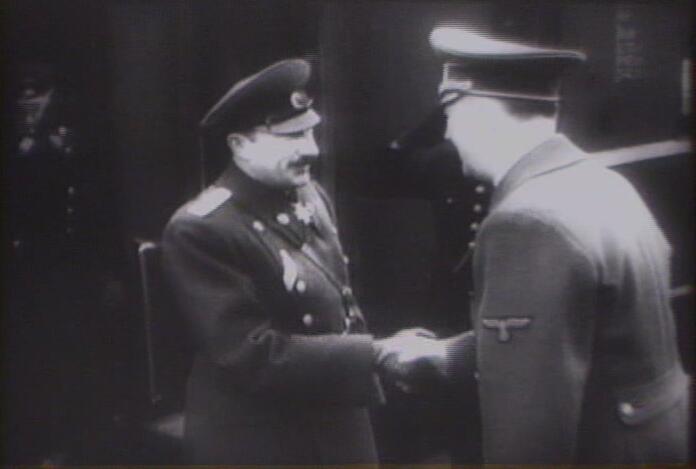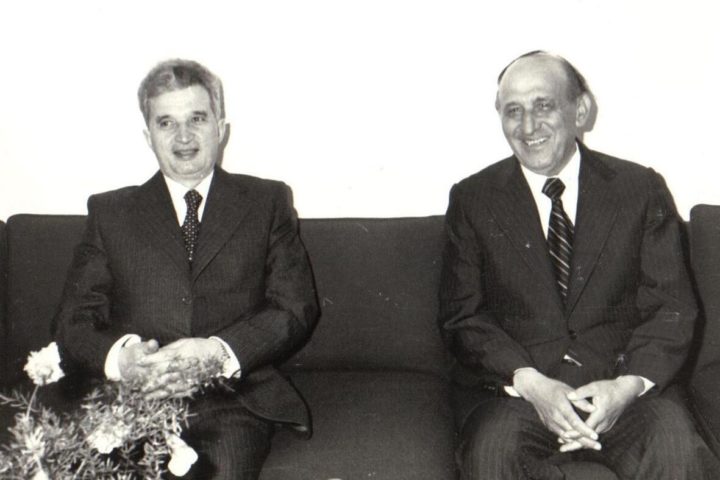People’s Republic of Bulgaria
In June 1947, Petkov was arrested. A leather trial was held in August. Called demonstrative crowds demanded death sentence. Petkov was executed in September. In December 1947, the country was given a new constitution and became a people’s republic. The last remnant of independent politics was gagged in 1948, when the Social Democrats who would not align themselves were arrested. During these years a large number of processes against opposition took place. Many were also jailed without any verdict. Following the rupture between Yugoslav head of state Josip Tito and Soviet head of state Josef Stalin in 1948, terror also began to target possible oppositional, ” titoic ” elements of the Communist Party. In 1950, there were proceedings against Traitsjo Kostov, former secretary general of the party, and several others. Kostov was executed and many others received long prison sentences.
In 1947, industry, mines and banks were nationalized, the process had all begun in 1944. The economy was transformed into a planned economy with a great emphasis on industrialization. The forced collectivization of agriculture began in earnest in 1948.
During World War II, Bulgaria sought an approach to the Axis powers. In the photo, King Boris 3 (left) greets Adolf Hitler.
In 1949 Dimitrov died, and another foreground figure from the interwar Comintern, Vasil Kolarov, became prime minister. When he also died, in 1950, Vulko took over Chervenkov. In the 1953 elections, the thoroughly defunct Federation Front was alone in drawing up lists, and these received 99.8 per cent of the votes cast (voting duty).
After Stalin’s death in 1953, there was some relaxation in Bulgarian politics as well. In 1954–55, the pace of industrialization slowed, and more emphasis was placed on agricultural and consumer goods. Police terror was mitigated, and in 1956 Chervenkov had to resign as prime minister and first secretary of the party. New party leader was Todor Shivkov and Prime Minister Anton Jugov (1957–1962). Executed “titoists”, among others Kostov, were rehabilitated. In a new settlement in 1962, Chervenkov lost the last of his duties, while Yugov had to step down. From that year, Shivkov was Bulgaria’s strong man – as long as communism existed in the country.
Bulgaria was one of the most faithful members of the Soviet bloc; there were no significant discrepancies or divergent political priorities such as the other countries once or more experienced. But relations with Yugoslavia have suffered during the dispute over Macedonia. Relations with Italy were strained after allegations that the Bulgarian intelligence service was involved in the 1981 attempted assault against the pope.
The Turkish minority
The most serious conflict in recent years with communist rule was related to the Turkish population (about 10 percent of the population). In 1984, the government waged a powerful assimilation campaign against the Turks; it became illegal to speak Turkish in public places, and the Turks had to take Bulgarian names. As a language of instruction, Turkish was banned from the 1970s.
From 1988 there were groups that put human rights on the agenda; some were concerned about the authorities’ abuse of the Turks, while others promoted international law requirements. In the summer of 1988, anti-Turkish demonstrations were launched and within a few months 350,000 people were on the run. Several thousands were expelled to Turkey. Although many returned, Shivkov’s international prestige was weakened. He did not receive support from Soviet head of state Mikhail Gorbachev, who wanted to strengthen Soviet relations with Turkey, giving the opposition a strong card.
Todor Shivkov (right) was Bulgaria’s head of state from 1962 until the collapse of the Eastern bloc in 1989. In the photo, which is from 1979, he is with Romanian dictator Nicolae Ceauşescu.
The fall of the Communist regime
The opposition in Bulgaria was weak and divisive, but strengthened its position at an international environmental conference in Sofia in October 1989. The environmental opposition organized information campaigns on the open street and linked environmental issues and international law requirements. International attention made it difficult for the regime to implement countermeasures. But as the conference neared the end, the activists were arrested, which generated strong reactions from the international community.
On November 10, 1989, after 35 years as party leader, Shivkov was deposed by a coup in the party leadership. Foreign Minister Petar Mladenov, who had secured Gorbachev’s support, became the new leader. The new leadership promised reforms by the Soviet pattern and to give back to the Turkish minority their rights. Opposition parties were also formed. The peasant party, which had previously been controlled by the communists, marked itself as an opposition party, and in December the Union Forum of Democratic Forces (SDS) was formed.
Discussions of political and economic reform started between the Communist Party and the opposition in January 1990. One of the opposition’s demands was that the Communist Party should relinquish the constitutional right to the leading role in society, which the National Assembly approved later that month. But both the opposition and the communists were skeptical about giving the Turkish people full rights. The Turks were given freedom of religion, allowed to speak Turkish in a public place and the right to decide on their own names. However, they were not recognized as a national minority nor were they given full freedom of organization; what the new rulers called “separatist organizations” was banned.
In the spring of 1990, the Communist Party changed its name to the Socialist Party, and in the election for a new National Assembly in June, the party gained a pure majority. In the same month student demonstrations were held in Sofia; the protesters had little faith in the old democratic line of the old communists. They also demanded openness on various sides of the Communist regime, as well as developments following Shivkov’s provision. After a while, the government deployed counter-protesters. In July, Mladenov had to step down after admitting that he had been willing to use tanks against the protesters in December 1989. SDS chairman Shelju Shelev was elected new president in August 1990.
In November 1990, the National Assembly decided to change the state’s name to the Republic of Bulgaria. A new and democratic constitution came into force on July 13, 1991.






